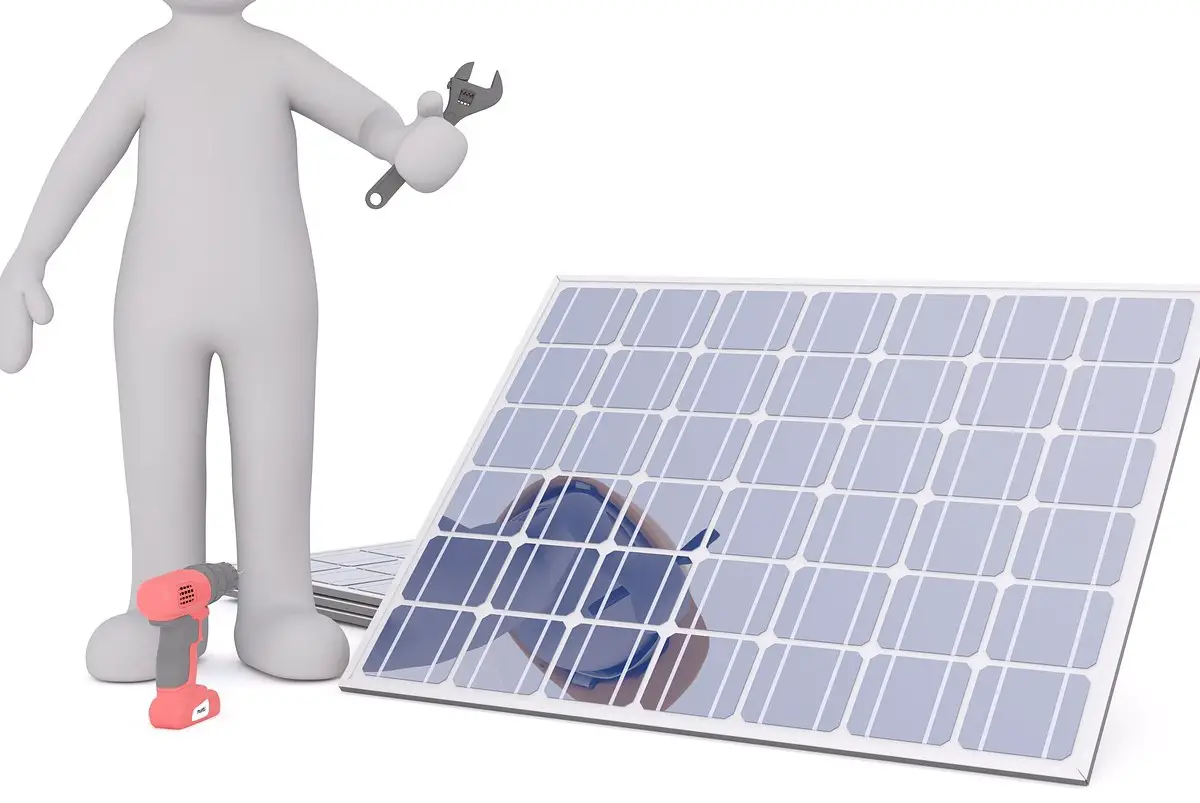Traveling in a recreational vehicle (RV) allows you to explore the world on your own terms. Whether embarking on a cross-country road trip or seeking solace in the wilderness, RVs provide comfort and convenience. However, these homes on wheels often rely on fossil fuels to power their amenities, contributing to environmental concerns and escalating fuel costs. In recent years, an innovative and eco-conscious solution has gained traction: RV solar panels.
The Basics of RV Solar Panels
Before diving into RV solar panels’ many advantages, let’s establish a fundamental understanding of how they work. Solar or photovoltaic panels are designed to convert sunlight into electricity. They consist of multiple solar cells made from semiconductors, typically silicon, that generate a flow of electrical current when exposed to sunlight. This process, known as the photovoltaic effect, forms the basis of solar power generation.
In the context of RVs, solar panels are installed on the vehicle’s roof to capture sunlight. These panels generate direct (DC) electricity, converted into alternating (AC) using an inverter. AC power is what most RV appliances and systems require to function, making this conversion a crucial part of the solar power system. The AC electricity produced is used immediately or stored in batteries for later use when sunlight is unavailable, such as during cloudy days or nighttime.
The Benefits of RV Solar Panels
RV solar panels offer a plethora of benefits that make them an attractive option for eco-conscious travelers and those looking to reduce their reliance on fossil fuels:
a. Sustainable and Eco-Friendly: The most significant advantage of RV solar panels is their eco-friendliness. By harnessing the sun’s power, RV owners can significantly reduce their carbon footprint. Solar energy is a clean and renewable resource, meaning it doesn’t release harmful emissions or deplete finite resources. This shift toward sustainable energy sources is a small but crucial step toward mitigating the environmental impact of RV travel.
b. Cost Savings: RV travel can be expensive, particularly when determining fuel costs for generators and appliances. RV solar panels can help alleviate this financial burden. Once installed, they provide free electricity, reducing the need for fuel-powered generators. Over time, the savings on fuel and maintenance costs can offset the initial investment in solar panels.
c. Energy Independence: One of the most liberating aspects of RV solar panels is the independence they offer. When you have a reliable solar power system, you no longer rely on campsite hookups or noisy generators. This newfound freedom allows you to camp in remote locations, boondock off-grid, and experience the serenity of nature without sacrificing essential amenities.
d. Quiet and Low Maintenance: Solar panels are virtually noiseless, a stark contrast to the constant hum of generators. Additionally, they require minimal maintenance. Routine cleaning to remove dust and debris is usually sufficient to keep them operating efficiently. This low-maintenance aspect further enhances the convenience of RV solar panels.
e. Extended Battery Life: Solar panels can extend their lifespan by reducing the strain on your RV’s batteries. Traditional RV appliances, especially power-hungry ones like air conditioners, can drain batteries quickly. Solar panels can help recharge these batteries daily, preserving their longevity.
Installation Considerations
While the benefits of RV solar panels are compelling, their successful integration into your RV requires careful planning and installation. Here are some key considerations:
a. Energy Needs: Start by assessing your RV’s energy requirements. Determine the total wattage of the appliances and systems you plan to power with solar energy. This assessment will help you determine the size and number of solar panels you need.
b. Roof Space: RV solar panels are typically installed on the roof, so evaluate the available space. Consider roof obstructions such as air conditioning units, vents, and satellite dishes. Roof-mounted panels should be positioned to maximize sun exposure throughout the day.
c. Inverter and Battery Capacity: Select an inverter that can handle the load of your appliances and an appropriate battery bank to store excess energy. Sizing your inverter and batteries correctly ensures a reliable power supply.
d. Solar Panel Types: There are various types of solar panels available, including monocrystalline, polycrystalline, and thin-film. Monocrystalline panels are known for their efficiency and durability, making them a popular choice for RVs.
e. Installation Method: Decide whether you want a permanent or portable solar panel installation. Permanent installations are affixed to the RV roof, while portable systems can be set up wherever you park your RV. Portable systems offer flexibility but require manual setup each time.
f. Charge Controller: A charge controller is essential to regulate the flow of electricity from the solar panels to the batteries. It prevents overcharging, which can damage the batteries.
g. Wiring and Electrical Connections: Proper wiring and electrical connections are crucial to ensure your solar power system’s safe and efficient operation. If you need more confidence in your electrical skills, hiring a professional for installation is advisable.
Impact on Sustainable Travel
The adoption of RV solar panels has a significant impact on sustainable travel practices. Here’s how:
a. Reduced Carbon Emissions: As mentioned earlier, RV solar panels help reduce the carbon footprint associated with RV travel. By relying on clean, renewable energy, RV owners can lessen their contribution to air pollution and climate change.
b. Preservation of Natural Beauty: Solar-powered RVs can camp in remote and pristine natural areas without noisy generators or access to electrical hookups. This minimizes the disruption of these beautiful places and allows travelers to connect more intimately with nature.
c. Noise Reduction: Traditional generators are notorious for their noise pollution. Solar panels, however, operate silently, enhancing the peacefulness of RV campsites and the overall camping experience.
d. Encouraging Sustainable Practices: The growing popularity of RV solar panels is encouraging more RV owners to adopt sustainable travel practices. This includes responsible waste disposal, reducing water consumption, and practicing leave-no-trace principles.
e. Economic Benefits: Sustainable travel can also benefit RV owners economically. With lower fuel and maintenance costs, RV enthusiasts can extend their travel plans and explore more destinations without breaking the bank.
Tips for Maximizing RV Solar Panel Efficiency
To make the most of your RV solar panels, consider these tips:
a. Monitor Energy Usage: Monitor your energy consumption to ensure you stay within the system. Many RVs come equipped with energy monitoring systems that provide real-time data.
b. Adjust Usage Habits: Conserve energy using appliances during peak sunlight hours when the solar panels generate the most electricity. Additionally, consider upgrading to energy-efficient appliances.
c. Keep Panels Clean: Regularly clean your solar panels to remove dust, dirt, and debris. Dirty panels can significantly reduce efficiency.
d. Angle Panels for Optimal Sun Exposure: If your solar panels are adjustable, tilt them to face the sun directly, especially during winter when the sun is lower in the sky.
e. Use Energy Management Systems: Install energy management systems that prioritize power usage and even automatically shut down non-essential appliances when low battery levels.
f. Stay Informed: Stay informed about advancements in solar technology and consider upgrading your system as new, more efficient components become available.
Related Articles
24 Hour Beaches Near Me, Ultimate Guide
RV Camping for Foodies: Gourmet Meals on Wheels
RV Camping in Extreme Weather Conditions: Tips and Tricks for Adventure-Seekers
RV Camping for Digital Nomads: Remote Work and Adventure on Wheels

